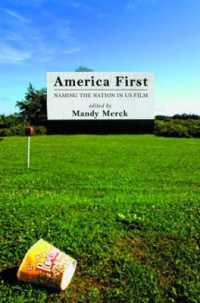Full Description
Explores how community action programs used federal funds to sponsor social protest-based community reform.
Honorable Mention, 2008 Gustavus Myers Book Award, presented by the Gustavus Myers Center for Human Rights in North America
Impossible Democracy challenges the conventional wisdom that the War on Poverty failed, by exploring the unlikely success of its community action programs. Using two projects in Manhattan that were influential precursors of community action programs-the Mobilization for Youth and the Harlem Youth Opportunities Unlimited-Associated Community Teams-Noel A. Cazenave analyzes national and local conflicts in the 1960s over what the nature of community action should be. Fueled by the civil rights movement, activist social scientists promoted a model of community action that allowed for the use of social protest as an instrument of local reform. In addition, they advanced a more participatory view of how democracy should work, one that insisted local decision making not be left solely to elected officials and other powerful people, as traditionally done.
Contents
List of Illustrations
Preface
Introduction
Elite Competition, Community Action, and Democratic Theory in the Expansion of American Democracy
1. Professional Turf Battles in the Planning of the Mobilization for Youth Project
2. Sufficiently Vague: The Ford Foundation, Social Scientists, and Their Conceptualizations of Community Action
3. Community Action and Congressional Intent: The President's Committee on Juvenile Delinquency and Youth Crime
4. The Mobilization for Youth Proposal and the Project's Dispute with Area School Principals
5. Challenging "Social Work Colonialism" in Harlem: The Harlem Youth Opportunities Unlimited and Associated Community Teams Proposals and Early Project Disputes
6. The HARYOU-ACT and Mobilization for Youth Project Crises of 1964
7. Black Protest and White Backlash: The Rise and Fall of Community Action in the War on Poverty
Conclusion
The Legacy of Impossible Democracy
Methodological Appendix
Notes
Index








